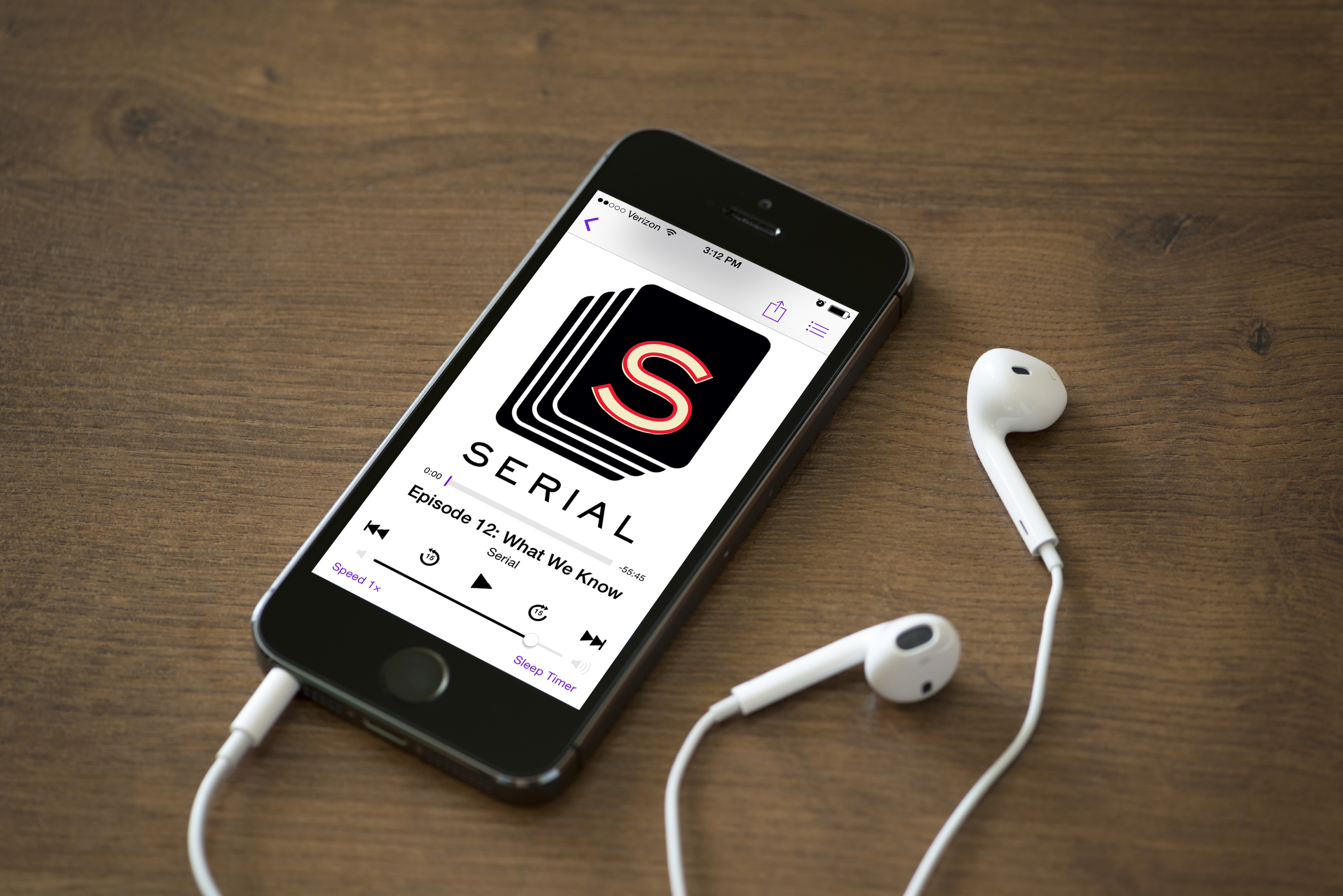The benefits of advertising on podcasts
Part of our series on the future of Main Street


A free daily email with the biggest news stories of the day – and the best features from TheWeek.com
You are now subscribed
Your newsletter sign-up was successful
Have you heard of Harry's? Stamps.com? Squarespace? MailChimp? If you have, it's likely that you heard about it from a podcast.
Indeed, these advertisers got in on the ground floor of what's turning out to be a skyrocketing business, with podcasts reaching larger and larger audiences in a unique and personal way way.
Podcasting is surging. In its latest survey, Edison Research's The Infinite Dial 2015 report found "monthly audio podcast consumption grew from approximately 39 million monthly users in 2014 to approximately 46 million in 2015."
The Week
Escape your echo chamber. Get the facts behind the news, plus analysis from multiple perspectives.

Sign up for The Week's Free Newsletters
From our morning news briefing to a weekly Good News Newsletter, get the best of The Week delivered directly to your inbox.
From our morning news briefing to a weekly Good News Newsletter, get the best of The Week delivered directly to your inbox.
"Mainstream awareness is growing," Lex Friedman, executive vice president of sales and development at Midroll Media, said. Podcasts got a huge push into the mainstream from Serial, an addictive weekly podcast investing a fascinating and largely forgotten murder case, not to mention other podcast hits like WTF with Marc Maron and Comedy Bang Bang.
"It's been an avalanche," Friedman said. "Shows have doubled in listener downloads over the past year, some from 200,000 to 400,000."
With this kind of boom in audience, it's a perfect opportunity for small businesses to get in on podcast advertising. Friedman said there's a growing awareness among advertisers of what podcasts are and why they want to be a part of them. Potential advertisers are now asking for podcasts by name, by demographic, or just saying, "I keep hearing about this podcast thing and I want to be a part of it."
Midroll represented about 90 shows in 2014, a figure that's grown to 210 this year.
A free daily email with the biggest news stories of the day – and the best features from TheWeek.com
Podcast advertising grazes the line of the advertorial, an advertisement meant to ape the look and feel of the editorial content in a publication. Podcast ads are often host-reads, where the hosts are the ones actually delivering the advertisement — much as TV news anchors once did — in a way that is integrated into the show. Unsurprisingly, there is some ethical debate about this.
Still, the power of these ads is hard to argue with. Podcast have a special relationship with their listeners — they are quite literally in your head. Friedman compares that relationship to the early days of Twitter, when you could feel like you know a celebrity on a very personal level. Communication is direct and intimate. "[That bond] lends an air of authenticity," Friedman said.
Even more authentic, if a host doesn't want to read an ad, he doesn't have to. That's something listeners tend to understand and appreciate. Friedman said that though Midroll generally knows what their hosts are comfortable with, they won't put words in their mouths. "Listeners know why the podcasts are free," Friedman said. "They know that supporting the advertisers means supporting the podcast."
Podcasts also provide measurable data — though there are no industry standards like Nielsen for television, counting episode downloads and subscriptions makes a statement. "Businesses are performance driven, so having the metrics is really important so they can see a return on their investment," Friedman said. "Renewal rates have been astronomical."
Podcast advertising can also be somewhat affordable for small businesses, at least compared to more traditional forms of advertising. Rates vary throughout the industry, but it's not uncommon for an advertiser to pay something like $30 for every 1,000 downloads of a podcast on which the host reads their ad. That's a pretty low-cost, measurable, and smart investment — especially for a medium that is far from hitting its peak.
Alma Bahman is Chicago-based writer and editor covering B2B and business. She's previously written for the Lawrence Journal-World and WBEZ.org.
-
 Political cartoons for February 20
Political cartoons for February 20Cartoons Friday’s political cartoons include just the ice, winter games, and more
-
 Sepsis ‘breakthrough’: the world’s first targeted treatment?
Sepsis ‘breakthrough’: the world’s first targeted treatment?The Explainer New drug could reverse effects of sepsis, rather than trying to treat infection with antibiotics
-
 James Van Der Beek obituary: fresh-faced Dawson’s Creek star
James Van Der Beek obituary: fresh-faced Dawson’s Creek starIn The Spotlight Van Der Beek fronted one of the most successful teen dramas of the 90s – but his Dawson fame proved a double-edged sword
